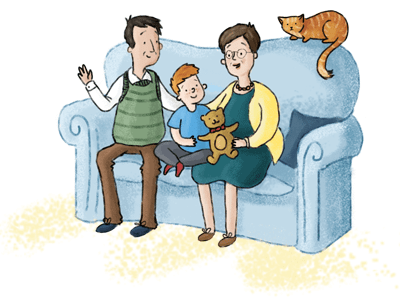
For most of us, making a Will is not at the top of our to-do list and the idea of creating a Will can be emotionally difficult. Planning what happens if the worst is to happen can be daunting but making sure that the future of your loved ones is protected can give you peace of mind.
Without the protection of a Will in the event of your passing, your estate will be subject to intestacy rules, which allow your assets to be divided amongst surviving blood relatives, in a strict order based on your family tree. This can cause distress for your loved ones at an already difficult time and your assets may not be distributed how you would have liked.
Making a Will is usually very straightforward, with many benefits. If you’re still unsure, we’ve answered the top 10 frequently asked questions for making a Will below so that you know where you stand.
1. Why should I make a Will?
Creating a Will is the only way to ensure that your money, property, possessions, and investments are distributed in line with your wishes once you die. You can also control who will benefit from your estate and be specific as to what they are entitled to. If you decide that you want your wishes to be carried out by someone specific, you have the ability to appoint somebody you trust entirely to deal with the administration of your affairs.
2. Can my family work it out for themselves if I die without a Will?
If you die without having made a valid Will, a legal precedent known as the intestacy rules will ultimately determine who benefits from your estate. Everything owned by a person who has died is known as their estate. If you do not have a valid Will, this can create difficulties between your loved ones and will make an already emotional time harder to navigate.
If you die and are unmarried or you have not registered your civil partnership, your partner will not benefit from your estate, even if you are living together. This is because partners simply living together do not automatically benefit from your estate, which is a very common misconception.
3. Do I need to use a Solicitor to make a Will?
The chance of a problem or dispute arising after your death is significantly reduced when you create a Will through a solicitor. It is important to have all legal grounds covered as homemade or ‘DIY’ Wills are usually not created properly. If your Will is not created properly this can cause issues such as your Will being deemed invalid.
Dispute chances increase when someone dies without a valid Will, as certain people are entitled to apply to the court to challenge the provision made by the intestacy rules. This can drag out the process, causing more stress for your loved ones. To read more about disputed Wills, read our article written by our legal experts here.
Speak with one of our solicitors today.
4. Where should I keep my Will?
You should keep the original somewhere safe and off your premises – for example, with your bank or your solicitor. If you get your solicitor to draw up your will in the first place, they can keep the original and give you a copy.
5. My assets are already laid out. Why do I still need to make a Will?
If you have business and/or property interests, it may be that you want those to be given to certain people. Having a valid Will allows you to do this, whilst being able to leave further assets to others. The intestacy rules provide for a division of your whole estate, so, if more than one person is due a share, this can necessitate the sale of assets.
Being able to state your wishes in a Will gets rid of any uncertainty for your employees if you have a business, and property may need to be sold despite it being the home of a particular beneficiary or other dependents.
6. Can an Executor of a Will also be a beneficiary?
The short answer is yes, they can. As long as they are over 18 years old, any family member, friend or loved one who is benefitting from your Will can be an executor.
7. Can any of my beneficiaries be a witness when I am making my Will?
No. If someone is a beneficiary in your Will, they should not be a witness to you signing it. This is also true for the spouse or civil partner of the person holding the beneficiary. If they do witness your Will or the signing of your Will, they will be disinherited.
Call us today to find out how to preserve your assets.
8. I’ve heard there is a tax benefit to making a Will. Is this true?
Yes. Creating a Will can be a useful tool to reduce Inheritance Tax if your estate is worth over £325,000.00 through the use of exemptions and reliefs.
9. Who looks after my children if I die without a will?
If you have any children under the age of 18 at the time you pass away, naming a guardian lets you decide who should have parental responsibility for your children. This is also the case for pets too.
If you die without a valid Will, the matter will be settled by a court, which might not place your children in the care you want. This is not typical conversation to discuss within a family, so having a way to officially express your wishes in a Will can prevent family fall outs and maintain those good relationships between all family members. It also gives guidance for those you leave behind.
10. What assets can go unaccounted for if they aren’t included in my Will?
It is common to only think about assets such as finances, material goods and property when creating your Will. However, it is also important to consider your emails, social media, and digital accounts. You may wish to protect your websites, music, and photographs by passing them to someone you trust.
When it comes to your email and social media accounts, you can also have peace of mind deciding whether you want this information destroyed or protected.
Still have more questions?
Making a Will doesn’t have to be stressful with the right legal guidance. Bromleys are able to provide step-by-step support to make the process of creating your Will as stress-free as possible.
Make an enquiry with our legal experts to get started on your Will, email us at bromleys@bromleys.co.uk or alternatively call us on 0161 330 6821.










